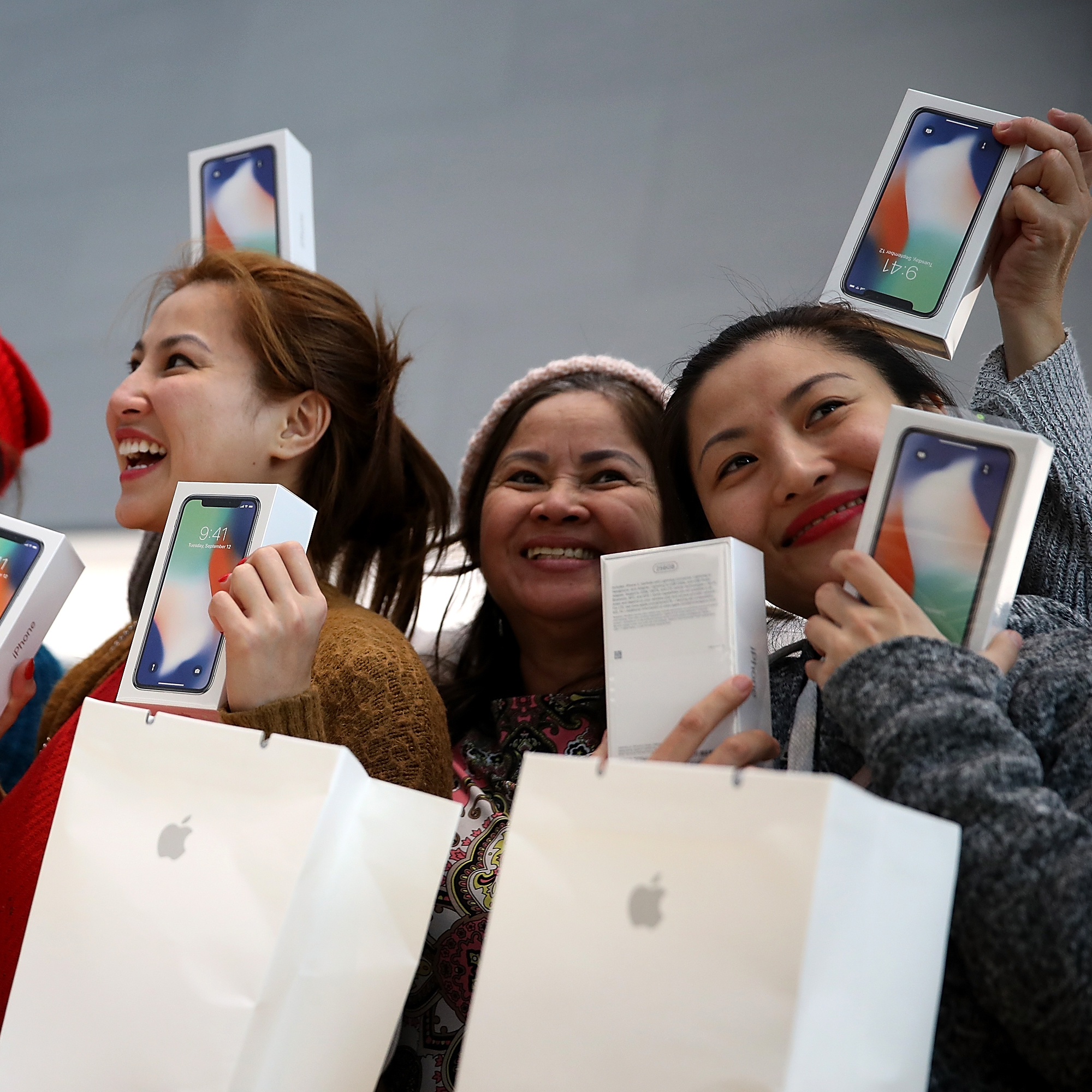
While top U.S. manufacturers and retailers are making progress toward making and selling products that are chemically safe, there remain wide disparities in the levels of success.
A consumer group called “Mind the Store” issued its second annual Retail Report Card Monday, ranking 30 companies based on the safety of the chemicals used to make and package products. The top ranked company was Apple Inc. (NASDAQ: AAPL) with an “A” grade and a score of 103 out of a possible 135.
Of the 30, 11 were included in the 2016 report and of those 11, the average grade improved from “D+” to “C.” The two retailers that performed best by this measure were Wal-Mart Stores Inc. (NYSE: WMT) and Target Corp. (NYSE: TGT). Walmart raised its overall rank to second, its grade from “B+” to “A-,” and its score to 87.5. Target improved its grade from “B” to “B+,” its rank to sixth overall, and its score to 79.
According to the report, the five retailers that improved the most “either adopted safer chemicals for the first time or substantially expanded already existing programs.” The five were:
- CVS Health Corp. (NYSE: CVS): up from “C” to “B+” and tied for third overall with IKEA
- Best Buy Co. Inc. (NYSE: BBY): up from “C-” to “B” and ranked seventh
- The Home Depot Inc. (NYSE: HD): up from “D+” to “C+” and ranked eighth
- Costco Wholesale Corp. (NASDAQ: COST): up from “F” to “C-” and ranked ninth
- Albertsons Companies Inc. (NYSE: ABS): up from “F” to “C-” and ranked tenth.
Over the past three years, a dozen retailers, including many of this year’s top 10, achieved serious reductions or elimination of dangerous chemicals far ahead of any government-imposed restrictions. Mind the Store’s list includes:
- Apple: Eliminated use of chlorinated organic solvents, N-methylpyrrolidone (NMP), and toluene in the final assembly of its products.
- Walmart: Since 2014, suppliers slashed high priority chemicals by 96% to Walmart and 49% to Sam’s Club, and more than halved priority chemicals for Walmart by 68% (all percentage reductions are by weight).
- CVS: Removed parabens, phthalates, and major formaldehyde donors from nearly 600 beauty and personal care products across several store brands.
- Ikea: Banned all per- and polyfluoroalkyl substances (PFAS) chemicals from textiles, a major leadership milestone in phasing out these very persistent compounds.
- Whole Food Markets: Eliminated formaldehyde-releasing compounds and oxybenzone from body care products, and phased out BPA in 70% of store-brand cans.
- Home Depot: Will eliminate alkylphenol ethoxylates (APEs) including NPEs in paints by 2019, and prohibited other chemicals of high concern in many products.
- Albertsons: Phased out BPA in more than 80% of store-branded can linings and in thermal receipt paper.
- Rite Aid: Suppliers eliminated triclosan, formaldehyde, diethyl phthalate, and dibutyl phthalate from its formulated products.
- Kroger: Converted 90% of its store-branded canned foods to non-BPA liners.
For all the good work, there is also some not-so-good. The report gives “F” grades to grocery chains Ahold Delhaize (Food Lion, Stop & Shop, Hannaford, and Giant stores); Trader Joe’s; apparel retailers TJX Companies (TJ Maxx, Marshall’s and HomeGoods) and Kohls; discount retailer Dollar General; hardware store Ace Hardware; office supplier Office Depot (including OfficeMax); cosmetics seller Sally Beauty; and children’s products retailers Toys R Us and Babies R Us. Eight of these stores scored 0 out of 135.
For more information and a detailed methodology, visit the Mind the Store website.
100 Million Americans Are Missing This Crucial Retirement Tool
The thought of burdening your family with a financial disaster is most Americans’ nightmare. However, recent studies show that over 100 million Americans still don’t have proper life insurance in the event they pass away.
Life insurance can bring peace of mind – ensuring your loved ones are safeguarded against unforeseen expenses and debts. With premiums often lower than expected and a variety of plans tailored to different life stages and health conditions, securing a policy is more accessible than ever.
A quick, no-obligation quote can provide valuable insight into what’s available and what might best suit your family’s needs. Life insurance is a simple step you can take today to help secure peace of mind for your loved ones tomorrow.
Click here to learn how to get a quote in just a few minutes.
Thank you for reading! Have some feedback for us?
Contact the 24/7 Wall St. editorial team.
 24/7 Wall St.
24/7 Wall St.



